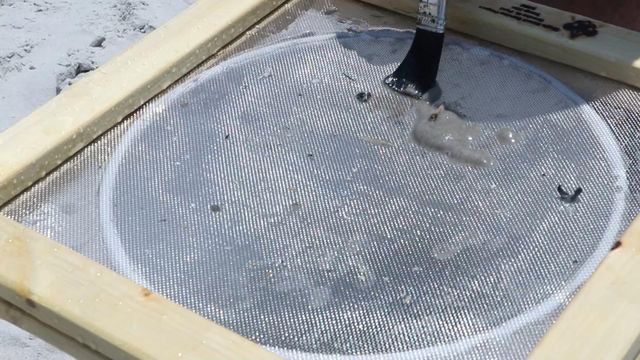Volunteers help search for microplastics along NC coast
Beach season is here, but a group of volunteers in North Carolina weren't heading to the coast for a day of fun, they're collecting samples, looking for tiny pieces of plastic.
Posted — UpdatedArmed with buckets and a sieve, Coastal Federation volunteers David Cignotti and Dick Gongaware were ready to comb the beach for tiny pieces of plastic along the Wrightsville Beach coast.
Researchers around the country are only just now beginning to understand the impact of microplastics.
“We have more questions than answers right now, we’re working with a lot of researchers both around the state and the country to understand the impact of these microplastics on the natural environment as well as on human health," said Kerri Allen, Coastal Advocate with the Coastal Federation.
A microplastic is any piece of plastic that is less than five millimeters in size. It forms from breaking down in the environment over time.
“They’re eaten by fish, they’re eaten by birds and marine mammals, and as well as even our oysters and filter feeders so as they work their way into these organisms they work their way up the food chain and unfortunately a lot of times into us," Allen said.
That's why citizen projects like the one held at Wrightsville Beach this month are so important.
“Our hope is with this program we can have them establish what the problem is, how pervasive these microplastics are, and see if there’s one specific type of microplastic that they are finding, so we can try to address it from a policy perspective," Allen said.
More than 30 volunteers were assigned to a different area along the southeastern stretch of North Carolina for the next six months. They'll be searching for a weekly basis for microplastics and collecting samples.
The Citizen Science project is also part of a larger program by the u.s. environmental protection agency that is encouraging people from around the country to join in on collecting microplastic samples.
“I’ve always been interested in plastic pollution and the more I’ve learned about microplastics," Cignotti said. "I wanted to learn sort of how it affects us locally and I think this is a good attempt to find a baseline on our North Carolina beaches.”
• Credits
Copyright 2024 by Capitol Broadcasting Company. All rights reserved. This material may not be published, broadcast, rewritten or redistributed.






